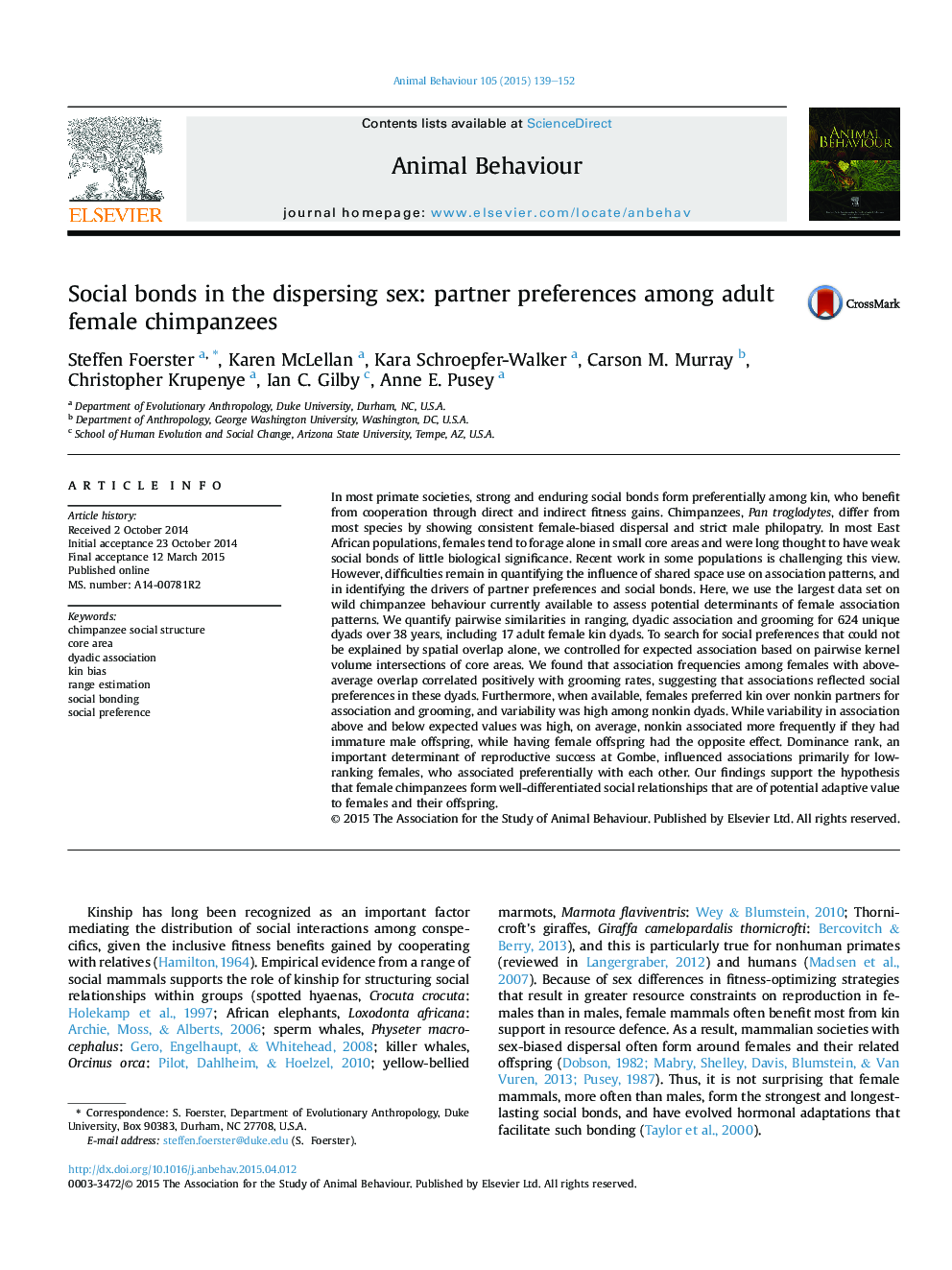| کد مقاله | کد نشریه | سال انتشار | مقاله انگلیسی | نسخه تمام متن |
|---|---|---|---|---|
| 8489825 | 1552223 | 2015 | 14 صفحه PDF | دانلود رایگان |
عنوان انگلیسی مقاله ISI
Social bonds in the dispersing sex: partner preferences among adult female chimpanzees
ترجمه فارسی عنوان
اوراق قرضه اجتماعی در جنسیت پراکنده: ترجیحات شغلی در میان شامپانزه های زنانه بزرگسال
دانلود مقاله + سفارش ترجمه
دانلود مقاله ISI انگلیسی
رایگان برای ایرانیان
کلمات کلیدی
ساختار اجتماعی شامپانزه، منطقه اصلی، انجمن دایادیک، تعصب زشت برآورد محدوده، پیوند اجتماعی، اولویت اجتماعی،
موضوعات مرتبط
علوم زیستی و بیوفناوری
علوم کشاورزی و بیولوژیک
علوم دامی و جانورشناسی
چکیده انگلیسی
In most primate societies, strong and enduring social bonds form preferentially among kin, who benefit from cooperation through direct and indirect fitness gains. Chimpanzees, Pan troglodytes, differ from most species by showing consistent female-biased dispersal and strict male philopatry. In most East African populations, females tend to forage alone in small core areas and were long thought to have weak social bonds of little biological significance. Recent work in some populations is challenging this view. However, difficulties remain in quantifying the influence of shared space use on association patterns, and in identifying the drivers of partner preferences and social bonds. Here, we use the largest data set on wild chimpanzee behaviour currently available to assess potential determinants of female association patterns. We quantify pairwise similarities in ranging, dyadic association and grooming for 624 unique dyads over 38 years, including 17 adult female kin dyads. To search for social preferences that could not be explained by spatial overlap alone, we controlled for expected association based on pairwise kernel volume intersections of core areas. We found that association frequencies among females with above-average overlap correlated positively with grooming rates, suggesting that associations reflected social preferences in these dyads. Furthermore, when available, females preferred kin over nonkin partners for association and grooming, and variability was high among nonkin dyads. While variability in association above and below expected values was high, on average, nonkin associated more frequently if they had immature male offspring, while having female offspring had the opposite effect. Dominance rank, an important determinant of reproductive success at Gombe, influenced associations primarily for low-ranking females, who associated preferentially with each other. Our findings support the hypothesis that female chimpanzees form well-differentiated social relationships that are of potential adaptive value to females and their offspring.
ناشر
Database: Elsevier - ScienceDirect (ساینس دایرکت)
Journal: Animal Behaviour - Volume 105, July 2015, Pages 139-152
Journal: Animal Behaviour - Volume 105, July 2015, Pages 139-152
نویسندگان
Steffen Foerster, Karen McLellan, Kara Schroepfer-Walker, Carson M. Murray, Christopher Krupenye, Ian C. Gilby, Anne E. Pusey,
